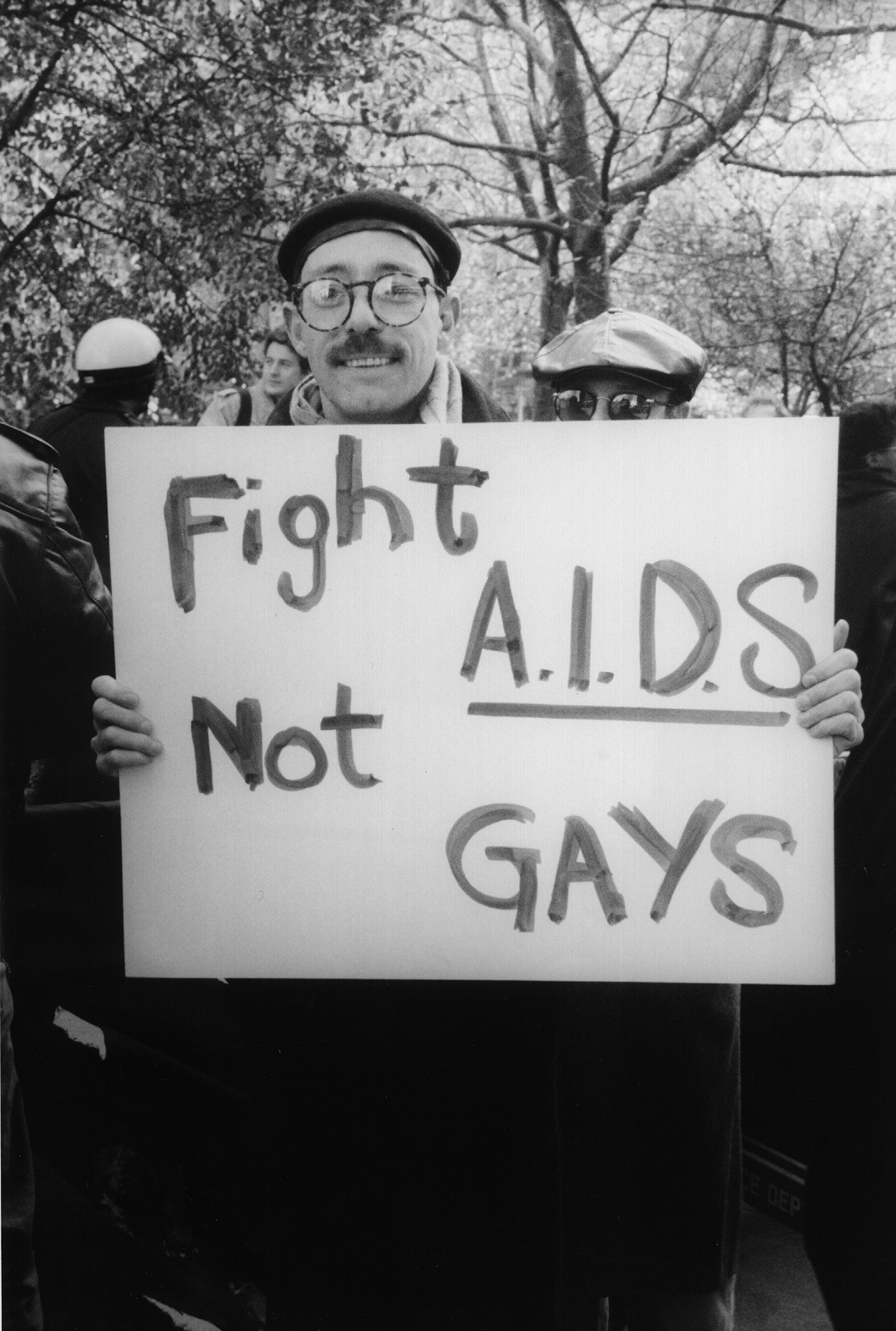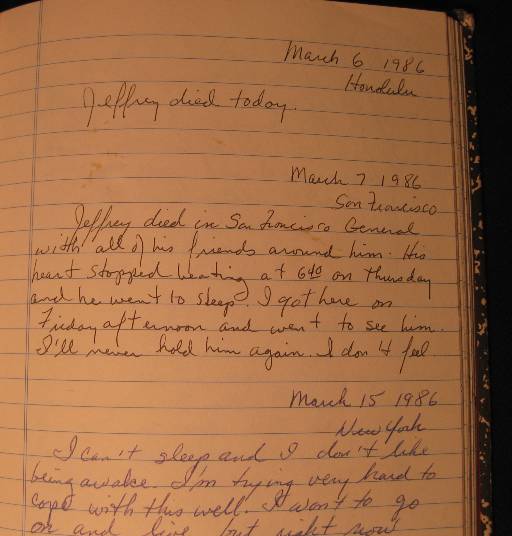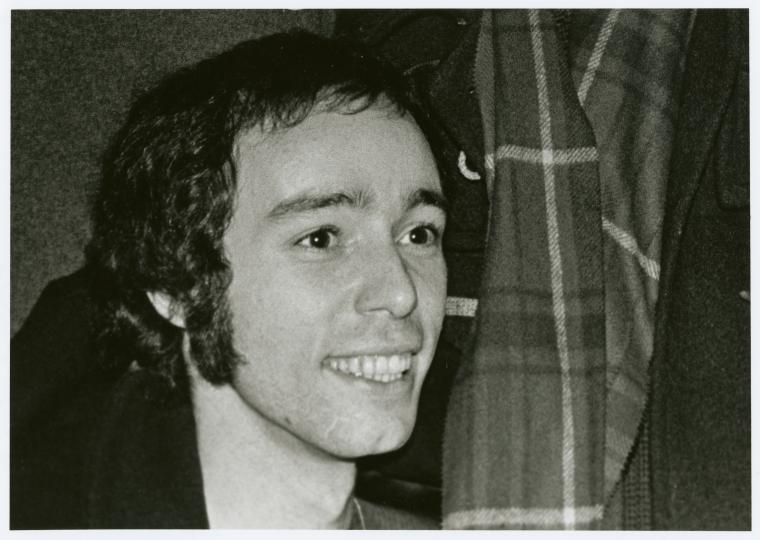
By Angela Montefinise

Image courtesy of HBO
Vito Russo never accepted injustice, even as a child.
When the legendary activist and pioneer in the at-times brutal fight for gay rights was just a young boy growing up on the rough streets of East Harlem in New York City, he was teased mercilessly by older boys, who constantly yelled gay slurs at him and, sometimes, beat him up.
"I remember when he was about 12, we were walking home from Catholic school in our little white shirts and our blue pants, and one of the older boys said, 'Here come the Girl Scouts,'" said Vito's younger brother Charlie Russo. "Even though they were bigger, Vito stood up to them. He always did. So he said to them, 'If we're Girl Scouts, then your mother is a Campfire Girl.'"
"You could just see that gene of advocacy even then," Charlie Russo said. "He was just not going to take it. He used to say, 'Some people are not upset about it. Injustice. But I am.'"
That was the theme of Vito Russo's life, and the subject of the new heart-wrenching and inspiring HBO documentary Vito, directed by Jeffrey Schwarz. It spotlights the passionate, dedicated and fierce-yet-gentle activist who helped found organizations such as ACT UP, exposed negative stereotypes of homosexuals in mass-market films in his legendary book The Celluloid Closet and fought for government action during the AIDS crisis, which took both him and his partner.

Diary entry about Jeffrey Sevcik's death on March 6, 1986 -- Vito Russo Papers, courtesy of The New York Public Library's Manuscripts & Archives Division
"I want people to know and fall in love with Vito, who in my mind was one of the the founding fathers of the gay rights movement," Schwarz said.
He is someone who has been criminally neglected over the years. His contribution was so vast. So many of the institutions we know today, Vito had a hand in. So I wanted to rejuvenate his memory and introduce him to the next generation of gay and lesbian kids, or really, anyone interested in justice. How can one person change the world? He did it. If he saw injustice in the world, he got off his butt and did something about it. He paved the way for the world we live in today. People need to understand that.
Phyllis Antonellis, Vito's cousin and babysitter, said she was overcome with emotion when she saw the documentary, first with sadness, and then with "awe" at Vito's brilliance. "How brilliant is this boy," she asked, then joking, "Where did he come from? And how did get into our family?"
She said that Vito's purpose was not only to help his own generation, but future generations, and she said,
It is amazing to me to have 17-year-old kids say that they never met Vito, but now he's their new hero. Now that I watched this documentary I thoroughly understand how important Vito was. He was born for this mission and what he accomplished. Even as a young boy, he was this fiery, passionate advocate for justice, while also being a great kid, who always called and always had time for his family. And never, since he's gone, will there ever be anyone else like him.
The film -- which debuted on July 23 and is now running on HBO, HBO OnDemand and HBO Go -- , drew heavily from research materials at The New York Public Library's Manuscripts & Archives Division, including photos, materials in the ACT UP archive, and Vito's papers , which were donated after his death by his close friend.
"I was able to access his papers that had a treasure trove of materials that included much of Vito's writing over the years for various publications, most of which are not in publication anymore, so this was the only place I could find them," Schwarz explained. "We also found videotapes of his lectures. One of the treasures we found at NYPL was a phone message from Jeffrey, his lover in the later years of his life. It was the last phone message that Jeffrey left for Vito before he went to the hospital. I think Vito knew there must be a reason to keep it."
The recording is in the documentary, and Schwarz said, "It was a very sweet and friendly message. Nothing dramatic about it. It was very intimate, and pays a pivotal role on our story, because losing Jeffrey, he was very special to Vito, and they were both dealing with the disease together, with very different personalities. It must have been very hard."
In 2008 the Library launched its LGBT initiative to process, preserve and digitize its vast collection of gay and lesbian related material, such as Vito Russo's papers, located in various departments of the Library, from the Manuscripts &Archives Division to the Billy Rose Theatre Division to the Black Gay and Lesbian Archive at the Schomburg Center. The goal was to make this material as accessible as possible, and thanks to generous contributions from individuals and companies such as Time Warner, the Library is moving closer to that goal.
"People don't realize that we have this history," said Jason Baumann, coordinator of the LGBT initiative. "People don't know that NYPL is one ofthe great repositories of the history of gay and lesbian activism in the country. There are only a few places that have comparable collections."
Hermes Mallea, who along with his business and life partner Carey Maloney has worked to raise funding and awareness of the initiative, added,
The Library has been collecting for the gay community for 100 years. They've been collecting without the gay community having to ask that. To see these many collections used by the historians and the documentary filmmakers to create something like this movie is just an affirmation of what we've always been thinking, which is that the NYPL is the place, thanks to these collections and open access to these collections, for historians who are writing and will be writing about the gay liberation movement. This is their resource. That is so heartwarming.
It is fitting that the Library is the place for such research, especially about Vito.
"If you wanted to find Vito as a kid, the two places he'd go were the movie theater and the library," Charlie Russo said. "So it's wonderful that the boy who was nurtured by going to the library and considered it a safe haven is having his work and his legacy preserved by the Library."
He added, "I hope after this movie comes out, using the stuff at the Library, that he's not considered a gay rights hero. He was just a hero. Period."

Image courtesy of Barbara Gittings and Kay Tobin Lahusen, Gay History Papers and PhotographsManuscripts & Archives Division